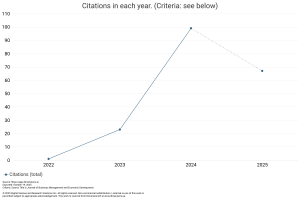Comparison of Capitalist and Socialist Economic Models in International Trade
DOI:
https://doi.org/10.59653/jbmed.v1i01.39Keywords:
Capitalist Economic Mode, Socialist Economy, International TradeAbstract
This study discusses the comparison between capitalist and socialist economic models in the context of international trade. A qualitative approach is used by analyzing references from several books and journals related to this topic. The research results show that in the capitalist economic model, international trade is used as a means to increase profits and economic growth, by prioritizing the interests of individuals and private companies. On the other hand, in the social economic model, international trade is seen more as a tool to meet people's needs and increase the distribution of wealth, with the pressure of collective ownership and the government as regulator. Although both have their advantages and disadvantages, this research shows that in the context of international trade, the social economic model has more potential to create more equitable distribution and social justice the original work.
Downloads
References
Augustiati. (2014). Capitalist Economic System. Tadoluko University Journal, (http://jurnal.Untad.ac.id/jurnal/index.php/academica/article/view/2326/1513, 6 January 2017
Deliarnov, (2015). Development of Economic Thought i, 3rd edition, Rajagrafindo Persada, Jakarta.
Hahnel, R. (2014). Economic Justice and Democracy: From Competition to Cooperation (2nd ed.). Routledge.
Mandel, E. (1975). Late Capitalism. Verso.
Schweickart, D. (2002). After Capitalism (new ed.). Rowman & Littlefield.
Siti Farida. ( 2014 ). Indonesian Economic System . Cv Loyal Librarian: Bandung.
Stiglitz, JE (2019). People, power, and profits: Progressive capitalism for an age of discontent. WW Norton & Company.
Sweezy, PM (1942). The Theory of Capitalist Development. Monthly Review Press.
Todaro, MP, & Smith, SC (2014). Economic development. Pearsons
Wolff, RD (2012). Democracy at Work: A Cure for Capitalism. Haymarket Books.
Downloads
Published
How to Cite
Issue
Section
License
Copyright (c) 2023 Nur Salimah, Maya Adelina Siallagan, Heru Elpando Banjarnahor, Khairani Matondang

This work is licensed under a Creative Commons Attribution-ShareAlike 4.0 International License.
Authors who publish with this journal agree to the following terms:
- Authors retain copyright and grant the journal right of first publication with the work simultaneously licensed under a Creative Commons Attribution-ShareAlike that allows others to share the work with an acknowledgement of the work's authorship and initial publication in this journal.
- Authors are able to enter into separate, additional contractual arrangements for the non-exclusive distribution of the journal's published version of the work (e.g., post it to an institutional repository or publish it in a book), with an acknowledgement of its initial publication in this journal.
- Authors are permitted and encouraged to post their work online (e.g., in institutional repositories or on their website) prior to and during the submission process, as it can lead to productive exchanges, as well as earlier and greater citation of published work (See The Effect of Open Access).





























